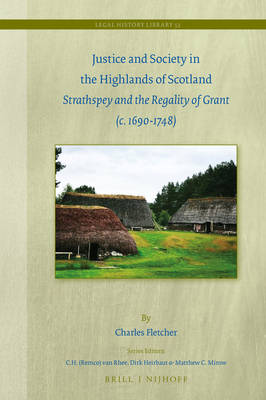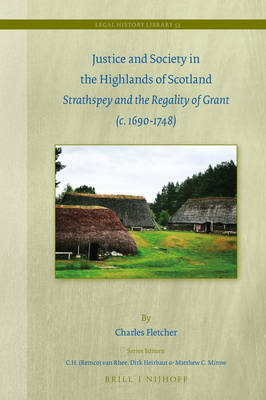
Je cadeautjes zeker op tijd in huis hebben voor de feestdagen? Kom langs in onze winkels en vind het perfecte geschenk!
- Afhalen na 1 uur in een winkel met voorraad
- Gratis thuislevering in België vanaf € 30
- Ruim aanbod met 7 miljoen producten
Je cadeautjes zeker op tijd in huis hebben voor de feestdagen? Kom langs in onze winkels en vind het perfecte geschenk!
- Afhalen na 1 uur in een winkel met voorraad
- Gratis thuislevering in België vanaf € 30
- Ruim aanbod met 7 miljoen producten
Zoeken
Justice and Society in the Highlands of Scotland
Strathspey and the Regality of Grant (C. 1690-1748)
Charles Fletcher
€ 193,45
+ 386 punten
Omschrijving
This book fills a significant gap in our current understanding of early modern Scottish history. It is the first systematic consideration of the workings of seigneurial courts of feudal lords in 18th century Scotland. For several hundred years, these courts were one of the main forums for justice across Europe. Until 1748, Scottish courts of barony and regality handled both criminal complaints and civil disputes; they made by-laws and levied taxes; they set wages and enforced morality. The 18th century was a time of epoch-defining events in Scotland, such as the Jacobite rebellions, and union with England. The amount of literature on this period of Scottish history is extensive; it is therefore remarkable that the story of these courts has been left untouched.
Specificaties
Betrokkenen
- Auteur(s):
- Uitgeverij:
Inhoud
- Aantal bladzijden:
- 272
- Taal:
- Engels
- Reeks:
- Reeksnummer:
- nr. 53
Eigenschappen
- Productcode (EAN):
- 9789004472518
- Verschijningsdatum:
- 28/10/2021
- Uitvoering:
- Hardcover
- Formaat:
- Genaaid
- Afmetingen:
- 155 mm x 234 mm
- Gewicht:
- 553 g

Alleen bij Standaard Boekhandel
+ 386 punten op je klantenkaart van Standaard Boekhandel
Beoordelingen
We publiceren alleen reviews die voldoen aan de voorwaarden voor reviews. Bekijk onze voorwaarden voor reviews.









